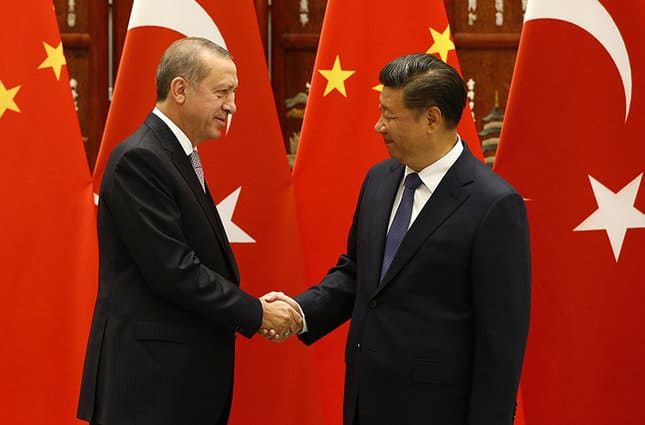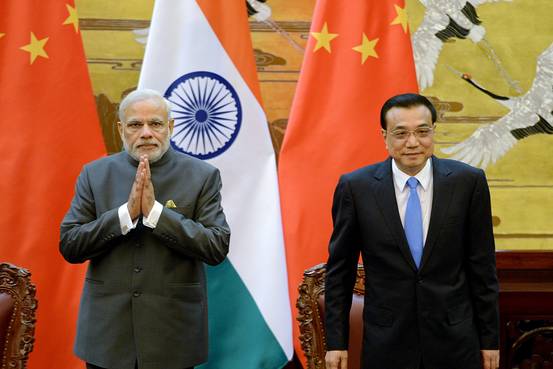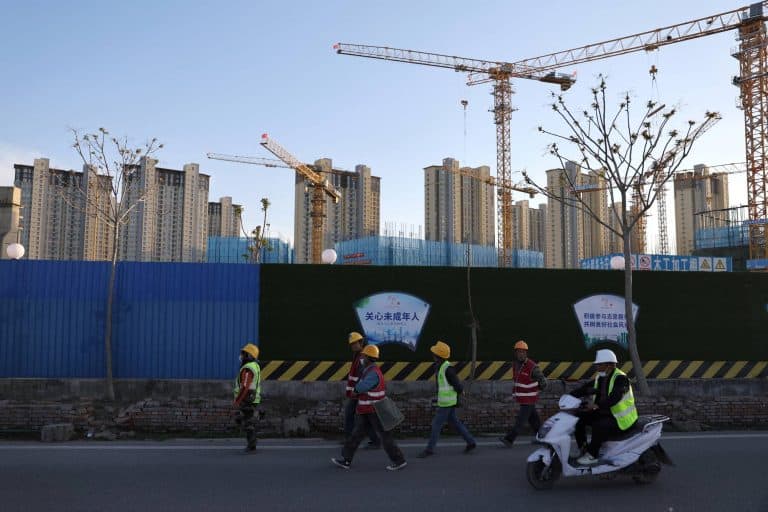Homebuyers in China are losing patience with the real estate downturn
Analysts claim that the confidence in China’s real estate market is in dire need of a boost after news of purchasers stopping their mortgage payments shook bank stocks and sparked concerns of a systemic crisis.
The impact of the most recent events on demand and pricing for residential housing, one of the largest financial assets in China, is more concerning than the magnitude of the mortgages themselves.

Many Chinese banks announced their low exposure to such loans last week as a result of an increase in the reported number of homebuyers stopping mortgage payments. But bank stock prices dropped. The homeowners, who had paid for their homes in advance as is customary in China, were protesting construction delays for the apartments.
The Goldman research warned that if left unchecked, more homebuyers “may quit making mortgage payments, [further] taxing property developers’ cash flows, [which in turn] might lead to greater building delays and project halts.”
The researchers claimed that uncertainty “dampens families’ motivation to purchase homes from these developers who, arguably, need the sales the most.”
Heavily leveraged firms like Evergrande Group filed for bankruptcy
Due to Beijing’s assault on the industry’s heavy reliance on debt for growth, it has become more difficult for China’s property developers to survive after two decades of tremendous growth. Late in the year, heavily leveraged companies such as Evergrande Group declared bankruptcy.
As a result of developers’ ongoing financial difficulties and Covid limitations, homebuyers have been forced to jeopardize their own credit by stopping their mortgage payments.As of July 13, the number of active real estate projects had more than tripled in a matter of days, according to Jefferies.
According to the researchers, this represents only 1% of China’s total mortgage debt. Per a report published last week by the financial services analysts at Goldman Sachs, the average exposure of banks it monitors to real estate, including mortgages, was just 17 percent.
The report concluded: “As a result of refinancing issues, developers have slowed down the construction of homes. We believe this mortgage risk relates more to consumers’ willingness to make mortgage payments than their ability to do so.” However, if a greater number of homebuyers begin to skip mortgage payments, the negative sentiment would reduce demand and potentially cause prices to rise in a vicious cycle.
Per the Gary Ng, senior economist at Natixis CIB Asia Pacific, “there is no chance of a rapid recovery in the real estate sector in the second half of 2022, and it will continue to hinder economic growth.” The solution is to restore the trust of homeowners and developers, but this has proven to be a difficult task.
Requests to finish and deliver apartments
Bruce Pang, chief economist and head of research for Greater China at JLL, believes that any policy that guarantees the delivery of homes would be beneficial. He stated that banks’ exposure to unfinished construction projects is limited and that they have the ability to restore market confidence.
The former head of the People’s Bank of China, Dai Xianglong, stated on Saturday that China would not experience a “subprime mortgage crisis” similar to that of the United States in 2007 and suggested measures to boost confidence in the real estate industry and stabilize housing prices. According to state-run media, this is the case.
However, even the state-backed Securities Times raised the specter of systemic financial risk in an article urging local governments and developers to meet their housing delivery deadlines last week.
Strategies to conquer the Chinese real estate market
The market for real estate in China is comprehensive. Consequently, a significant number of developers are attempting to capitalize on the opportunities there. But they are overwhelmed by the market’s complexity. To adapt to the market and its consumers, a particular strategy must be implemented. We must be aware of the stringent legislation so that it does not act as a hindrance.
There are three steps you need to go through in order to sell your property on the market:
- Work on your Visibility on the market
- Improve your Brand image
- Sale your products
Work on your visibility on the Chinese Real Estate market
Baidu is the leading Chinese search engine, comparable to Google. Do you realize the exposure your company could receive if it were prominently referenced there? One million users daily.
Your citations are essential. Thus, you’ll be visible to the specified real estate agents.
To accomplish this, it is necessary to understand how to implement Search Engine Optimization strategies. Forget the techniques you currently possess. Baidu has its own set of regulations. Therefore, you must learn more about it. A professional in Chinese digital marketing, GMA, has written articles to inform readers of several techniques that Baidu uses to promote good SEO.
Enhance your Brand’s Image
Once you are visible. You must attract your target audience. To accomplish this, an adapted brand image is required.
But how should your brand image be adapted for China?
You must adhere to Chinese requirements. The sales process is typically lengthy, and yours will be even longer. Notably as a result of laws, language barriers, currency, etc. Therefore, you must arm yourself with patience!
Mastering Baidu is one of the essential elements. But WeChat is the one you will learn by heart. WeChat is no longer a secret as an indispensable application for conducting business in China.
Marketing is the Key to target Chinese investors
In China, real estate agents prefer to work with reputable companies. You must be a member of a real estate listings website or the China Institute of Real Estate Appraisers and Agents, such as the China Real Estate Chamber of Commerce. You must realize that digital estate is the key to developing your international real estate firms (like Joanna Real Estate). All real estate brokerages (including Beijing Homelink Real Estate Co., Ltd. and Centaline Property) seek international property partners.
The property values in China are absurdly high. All wealthy individuals own numerous apartments. The situation with half-completed apartment towers, tens of thousands of apartments for sale, and no apartment rentals causes irate families and apartment sellers to cease investing in China and seek stable alternatives abroad. All Housing Studies in Chinese megacities are negative (with the exception of Senior Housing) because the average housing price is decreasing. The average company profit margin declines, and all of China’s largest firms are negatively affected. All advisory firms recommend against investing in China.
GMA case study
DAMAC
The upper classes in China are more attracted by international re-location than ever before. Owning property abroad is increasingly the most popular form of investment for the wealthy in China. Collecting information before purchasing is an essential step in the process for Chinese property investors. Research is done online, and having a strong digital presence allows you to be more visible and attractive to investors. This is why it is so important to build a good e-reputation. Visibility + Reputation = Lead Generation in China. “Damac Properties” is a luxury Real Estate company from Dubaï, they provide luxury dream homes with unique designs and stylistic concepts.

Why don’t you contact us today and let’s talk strategy? The opportunities are waiting and time is of the essence.






